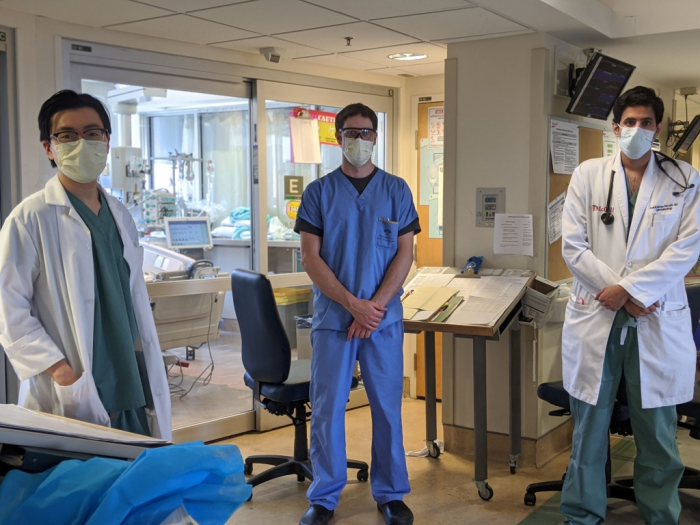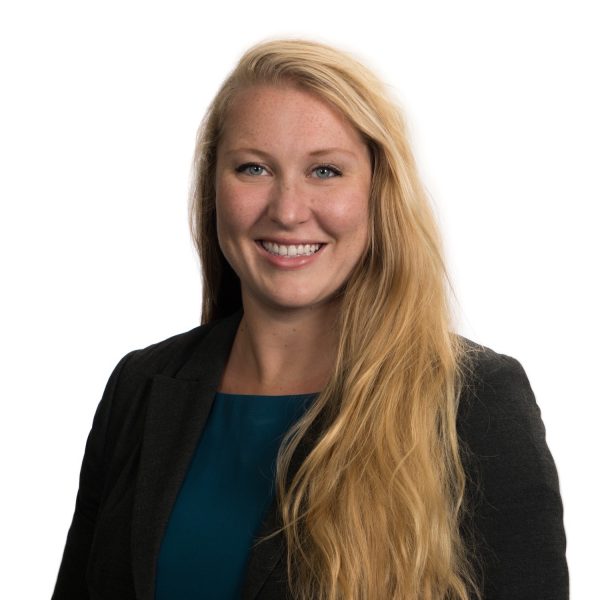
When Dr. Leon Tourian was in the process of being appointed Assistant Dean, Postgraduate Medical Education (PGME) a few months ago, no one could have predicted the rise of the COVID-19 pandemic disrupting normal life across the world. “We are in a unique situation – something our generation has never seen before and hopefully will never see again,” says Dr. Tourian of the pandemic.
Inspired by the enthusiastic desire expressed by McGill’s cohort of medical residents to help care for Quebec patients since news of the pandemic first broke, Dr. Tourian, who is also an Assistant Professor in the Department of Psychiatry at the Faculty of Medicine, found himself diving right into plans to redeploy residents within the first week in his new job, with the support and guidance from Associate Dean of PGME Dr. Armand Aalamian.
“In the first two-week period we redeployed 90 medical residents and then another 70 residents in the second,” notes Dr. Tourian of the efforts, which officially began on April 3. “COVID wards have required about 50 residents so far across our teaching sites.”
McGill residents eager to do their part in pandemic response
Concrete discussions around redeploying residents began in earnest after receiving the support of the Fédération des médecins résidents du Québec and the Association of Residents of McGill, whose President, Dr. Annick Berard-Giasson was eager to engage as quickly as possible. “Our first motivation to become doctors is to help and heal others,” explains Dr. Berard-Giasson, a third-year resident in Anesthesia. “So when we were given this opportunity, it was our first impulse. We want to contribute to the efforts to the best of our abilities. As a resident, we are used to changing working environment regularly, adapting to new teams, new organizations and rapidly evolving situations.”

The Resident Redeployment Hub (RRH), designed to ensure that this effort would be organized in an efficient and secure fashion, was established in mid-March, administered by Alessandra Celani and Jessica McCaffrey, with Dr. Tourian serving as the PGME lead and Drs. Beth-Ann Cummings, Patrizia Zanelli and Mathew Hannouche serving as leads for the hospitals.
Program directors provide names of residents available for redeployment for each two-week period to the RRH, which allows McCaffrey to maintain a current and updated list. The RRH then meets virtually and assigns residents to the most suitable environment, prioritizing an emphasis on ensuring the protection of the resident learners. “Obviously one of our first concerns was to have the proper PPE and supervision to make sure that we can make the most of our rotations even in this unusual context,” says Dr. Berard-Giasson. “The guidelines provided by PGME ensured that our learning environment remained at the highest level.”
Like so many people these days, the RRH holds weekly Zoom meetings with residents and program directors. “All of us working as part of the RRH are in constant communication with program directors, hospital education leaders and service chiefs, which is essential during these times when in-person meetings are impossible,” says Dr. Tourian. “Our reality changes daily and keeping channels of communication open with all stakeholders is the only way to make this work while ensuring the safe redeployment and continued training of our residents.”
Eager to help more
To date both the hospitals, which have been steadfast to ensure appropriate personal protective equipment and support to the residents, and the residents themselves have been satisfied with the redeployment efforts.
Dr. Mark Dunn, who has so far completed rotations in the Montreal Children’s Hospital Emergency Department and the Montreal General Hospital’s (MGH) Intensive Care Unit, mentions that he and his colleagues have had full support from PGME and the hospitals. “Everything from ensuring we have been fitted for masks, adequate donning/doffing training, practice with code blue simulations, etc. The McGill WELL office also reached out to us offering several resources,” says Dr. Dunn. “Finally, staff have continued to provide necessary teachings on various topics, safely through zoom. I am impressed with the amount of planning that has gone in to ensuring such a safe work environment and look forward to my upcoming rotations at the MGH and Jewish General Hospital Emergency Departments.”
“The majority of residents want to fully participate in the effort to fight this pandemic, and are eager for even more opportunities to do so,” adds Dr. Berard-Giasson. “I regularly receive emails from residents asking how they can be redeployed to help in the collective effort.”
Uniting for a common goal
Dr. Tourian notes that, while no one ever wants to find themselves in the throes of a pandemic, an important artifact of this crisis once we are through it will be the valuable expertise that has been gained with respect to how to answer the future needs of our population.
“There are silver linings to this pandemic that we should take the time to appreciate once the crisis is over,” says Dr. Tourian. “The pandemic has tightened communication between leaders from the Faculty and the hospitals, and the benefits are priceless. While it has strained our system, the pandemic has forced us to unite and reorganize postgraduate education to care for patients while also continuing to learn. This is something no resident, no faculty member, and no medical student will ever forget.”
“It is a new and challenging experience being a resident during the COVID pandemic,” says Dr. Abdulrahman Alotaibi. “In terms of learning about a new disease and its management – the emphasis on hand hygiene and preventive measures have never been more important to prevent an outbreak to other patients and health care workers. The support and guidance from the hospital staff is phenomenal.”
Ultimately, Dr. Tourian notes how remarkable it is to see health care professionals unite for a common goal. “It is amazing how such a massive crisis has bound everyone together, creating a platform of creativity, teamwork and support among everyone from our PGME team to hospital administrators and educational leaders to our doctors, nurses, and other health care professionals, who are all working together to provide the best care possible for our patients.”
